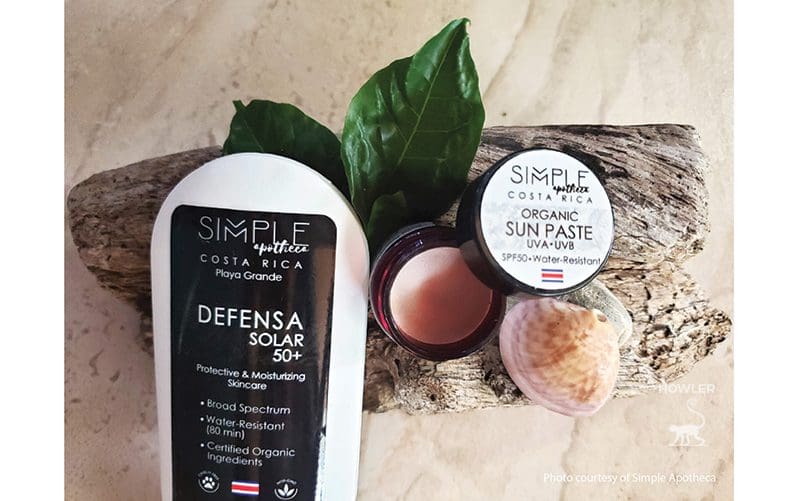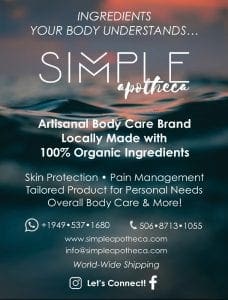
Protect Coral Reefs and Protect Your Skin
Sun and Sea Sensibility: Protect Your Skin and Protect Coral Reefs. As someone who grew up diving the coral reefs of the Florida Keys, I have sadly seen firsthand the dramatic decline and devastating destruction of this critical and colorful marine ecosystem.
Coral reefs are home to a vast and beautiful concentration of plant and animal life. They provide an irreplaceable habitat for countless full-time and seasonal species that depend on the coral reefs for breeding, birthing, growing, feeding and resting. They also directly support 500 million people worldwide and contribute significant value to the tourism economy.
More than 3,500 sunscreens contain ingredients
that have been proven detrimental, if not deadly, to marine life.
According to the United Nations Educational, Scientific and Cultural Organization (UNESCO), the 29 reef-containing World Heritage Sites could be extinct by the end of the century if current environmental threats continue unabated. The combined impact of global warming, overfishing, industrial and agricultural pollution and the overuse of single-use plastics is disheartening. In addition, sunscreen products are attributable for some 14,000 tons of toxic chemicals emitted into the ocean every year.
It’s understandable to feel powerless when it comes to making a difference as an individual. Yet, the small choices and changes we make as consumers can have a significant collective impact. In addition to reducing plastic pollution and opposing unsustainable fishing practices, making informed choices about the type of sunscreens we use can help protect coral reefs and save the them from extinction.
Toxic ingredients
More than 3,500 sunscreens contain ingredients that have been proven detrimental, if not deadly, to marine life: coral, green algae, sea urchins, dolphins and other large marine mammals, as well as thousands of species of fish. Recently Hawaii, the U.S. Virgin Islands, Key West, Bonaire, and Palau banned the sale and use of sunscreens containing oxybenzone and octinoxate, which have been directly linked to mass coral bleaching.
However, avobenzone, octocrylene, phthalate, homosalate, cyclocopentasiloxane, and methylisothiazolinane can also damage coral DNA. They can disrupt their natural reproduction and growth cycles and bioaccumulate, while also harming other marine species.
Alarmingly, there are no federal regulations defining terms such as “natural,” “green” or “reef-friendly” in marketing biodegradable sunscreens, personal care products or cosmetics. So, be wary about brands that make these claims but contain hazardous ingredients. In fact, titanium dioxide and non-nano zinc oxide are the only two active sunscreen ingredients that have been deemed completely safe for your body and the ocean.
 Costa Rican pioneer
Costa Rican pioneer
Fortunately, a growing number of effective and all-natural mineral reef-friendly sunscreens are emerging, including various brands developed in Costa Rica. Karen Carozzi is an inspiring pioneer in developing the sunscreen brand SIMPLE Apotheca, based out of Playa Grande. It was born from her personal struggle to find a natural mineral sunscreen that not only provided waterproof sun protection, but also was non-irritating to her skin and safe for her body.
As a lifelong ocean-lover, raised in the United States by environmentally conscious parents from Costa Rica, Carozzi has always felt a strong connection with nature and moral responsibility to protect the planet. After completing an anatomy, physiology, and aromatherapy program at Aromahead Institute, she applied a lot of her knowledge to create the SIMPLE Apotheca product line.
Safe for you and the environment
The surfer-approved and ocean-friendly sunscreen contains non-nano pharmaceutical-grade zinc oxide, organic coconut oil, non-GMO vitamin E, organic beeswax, and lavendula angustifolia. Not only are these ingredient names relatively easy to pronounce, but are likely familiar to many. Consumers can feel good about putting SIMPLE Apotheca on their skin, and ultimately into the environment.
When many individuals make small changes like switching to a sunscreen containing minerals instead of chemicals, monumental results can be achieved. With planet-friendly brands like SIMPLE Apotheca, the choice is too simple not to make.
Read more about protecting coral reefs and other species here.
